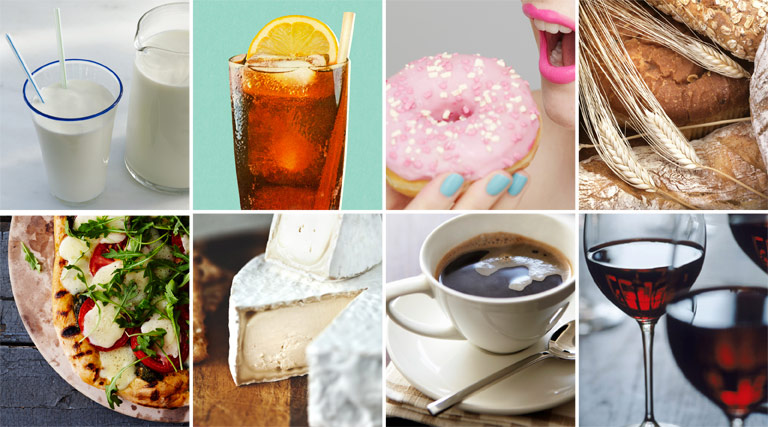If you’ve been wondering why the foods you love aren’t loving you back anymore, here are the likeliest culprits.
The following written content by Krissy Brady

There are plenty of things that tend to sneak up on you during the aging process (like the grunting noises you can’t not make as you get off the couch), but none are quite as sneaky as your body no longer digesting your favorite foods in a peaceful manner.
“There can be both age-related physical changes that happen to the digestive tract, as well as chronic lifestyle factors, like stress or alcohol use, that cause inflammatory damage to the gut,” says Anna Binder-McAsey, RD, registered dietitian and owner of Rethink Nutrition in Manhattan, Kansas. “All of these factors can cause strain on the GI tract and lead to some weakening or damage that ultimately impacts digestion.”
Because there are both mechanical and chemical processes at play during the digestion process—and a disturbance to any one of them can trigger your gastrointestinal tract to retaliate at mealtime—nailing down exactly where your digestion’s going off the rails can be complicated. Here are the likeliest culprits and how best to tackle them.

Why You Can Become Sensitive to Certain Foods as You Get Older:
Your chewing skills need work.
Your mouth isn’t producing as much saliva.
You’re on medication.
Your mouth isn’t producing as much saliva.
You’re on medication.
Your blood sugar’s perpetually high.
You’re running low on stomach acid.
Your microbiome’s out of whack.
Read more about the reasons why you can become sensitive to certain foods from Food & Wine.
How to Improve Your Digestive Health
“It’s never too early or too late to start adopting a gut-friendly lifestyle, starting with bringing more good bacteria to the gut,” says Binder-McAsey. “This can be done by choosing probiotic-rich foods like yogurt, kefir, tempeh, sauerkraut, kimchi and kombucha.” (These are the best and worst foods for your gut health.)
If you’re not a fan of these foods or struggle to eat them on the regular, Binder-McAsey recommends popping a probiotic supplement that has at least five different strains of good bacteria and 5 to 10 billion CFUs.
Prebiotic foods are also important, since they contain fibers that help feed and fuel the good probiotic bacteria. Enter beans, onions and garlic, bananas, artichokes and whole grains.
“For someone already experiencing digestion issues, these foods may cause unwanted gas or bloating,” says Binder-McAsey. “But focusing on these foods before digestion issues start showing up can be an important part of building a strong microbiome and aiding digestion.” (Working with a dietitian who specializes in digestion can help you work toward safely adding them into your diet without causing symptoms.)
Meanwhile, bone broths can provide the tissue of the gut with the nutrients it needs to repair and strengthen—most notably, collagen, which is an important protein needed for tissue repair. “Alternatively, collagen powders are a widely available supplement and can be found in flavorless varieties that mix discreetly into your favorite foods and drinks,” says Binder-McAsey.
Also think about adding more colorful fruits and veggies to your plate, like berries, spinach and citrus. These foods are high in fiber and keep the number-two train running smoothly.
But most importantly, try not to let your digestive problems go unaddressed, and seek out professional help sooner rather than later. Read more from Food & Wine.





